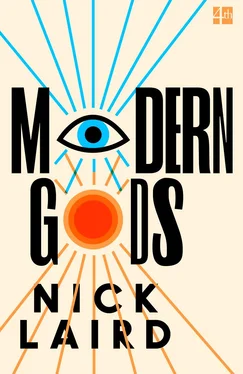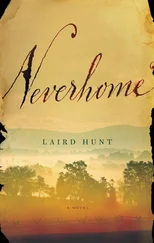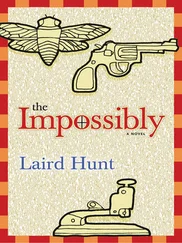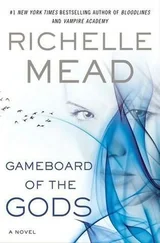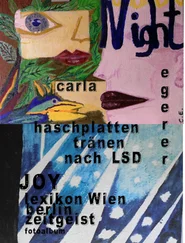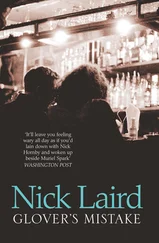“I’ll say this. It’s all one sided in any case. There’s no consultancies coming our way.”
Our way? She wound the window down a few inches and let cool air into the car. There was the lancing smell of slurry. Our way. Our way or the highway. Press-ganged back into the caste, no questions asked. Impossible not to be picked for a side. If you tried to sit on the fence, you came to realize that you couldn’t move, not an inch, for you would topple off and land on one side or the other, covered in bullshit. The north was thesis and antithesis, but no synthesis. It would outlast us all. There was no way round it. What was the word? There was a French word. Uncontournable . There was no getting round it. For sufferance is the badge of all our tribe.
At university she wrote her master’s dissertation on the special kinship groups of Ulster. Her home province was a nightmare of disorder in which she tried to find an order. She became an anthropologist, she told herself and others, because her childhood in that province, state, statelet, made her search for reason in the most unreasonable of places. The work she loved—Lévi-Strauss, Bourdieu, even Foucault—shared the desire to tease new meaning from habituated reality. For how could you live here and not be sad? It was absurd: You didn’t “believe” in something if you were born into it. You accepted it, you acquiesced, you submitted, you lost—and you gave up the chance to become yourself, to come to conclusions of your own. One must be very naive or dishonest to imagine that men choose their beliefs independently of their situation.
“A mess. A complete mess. And that crowd at Stormont, sure they couldn’t organize a piss up in a brewery.”
She pressed the tip of her index finger against the side of the pad of her thumb, shaping from her hand a triangle. She made the other match it, touched the tips of the fingers and thumbs to each other. Were there other triangles in a world of circles and squares? Was everyone a triangle pretending to squarehood or circledom? Who was Andrew McLean? The triangle, the circle, the square? Her hands looked like a mask. She wanted to ask him but didn’t. I therefore claim to show, not how men think in myths, but how myths operate in men’s minds without their being aware of the fact.
“True enough.”
They were through the roundabout.
She was almost home and then she was.
And here on the doorstep were her parents: her mother—elegant in black slacks and a caramel cashmere sweater—watering the dripping hanging baskets; and behind her Kenneth, directing, grayer and frailer and smaller than in the memory but now waving with both hands, and pleased to see his daughter. She could see that clearly now, the real pleasure that she brought to them both just by being in their world, at least at first.
As she hugged her mother, Stephen carried her rucksack into the hallway and her father commented on the rain holding off. Then he looked down and said, “Now what in God’s name is that?”
The dog was jumping up at her knees. She stooped and picked her up.
“Atlantic. You remember me telling you about the dog?”
“I do, yes. I didn’t know you were bringing it over.”
“Her.”
Atlantic gave Liz’s ear an explorative lick and Kenneth grimaced.
“I found her on a subway platform.”
Judith said to Stephen, “Will you sit and have a cup of tea? Or coffee? We have a new machine.”
“I really should fly on, actually. I have to be in Tandragree by twelve.” Stephen felt the little extra silence Judith greeted this with, and said, “Maybe a quick coffee.”
“It’s very good of you to go and pick this one up,” Judith continued, to Stephen, who did not disguise in his face the fact that he thought it was good of him too.
“Well, Alison’s off to a fitting there for the dress, isn’t she, and I know you guys have enough to be getting on with.”
“I think we’re almost there,” Judith said.
Kenneth frowned. “I don’t see why your brother couldn’t have—”
“I didn’t ask Spencer,” Liz cut him off. “I mean I texted him and left him a message, but sure he never got back to me.”
Stephen looked from Liz to her father. Already a gloom of mutual resentment was setting in on both their faces.
“The garden looks very well,” Stephen offered, but the thought of the garden only reminded Kenneth of the tent that was destined to destroy his lawn.
“The marquee people were supposed to come tomorrow morning to put it up, but now they say they can’t come till the afternoon.”
“It’ll be fine,” Judith said, throwing Liz a glance. “It’ll all be fine.”
Liz lugged her rucksack up the stairs, and set it on the bed beside one of her old exercise books. She flicked through it and felt a great rush of sadness. There was such pathos in childish handwriting, especially one’s own. Time had this terrible habit of creeping up and pistol-whipping you on the back of the head. She unzipped her suitcase and decided she couldn’t be bothered to unpack yet. She emptied her pockets of her passport and coins and gum on the vanity unit, where her mother had set a little vase with a head of blue hydrangea from the garden. Behind the vase, propped against the mirror, was a neat row of eight copies of her own book—all signed by her—which Kenneth kept there in case he ever found anyone else to give it to. She lifted the books and set them in the bottom of the built-in wardrobe.
After she received her PhD from King’s College, London, Liz had entered “her slump,” as the family referred to it: two years of trying to get her thesis on Lévi-Strauss accepted by academic publishers, and being rejected for dozens of research fellowships and junior teaching positions, and working in a bar in Clapham, and smoking a great deal of weed. One lunchtime, having woken at noon, she stood in the kitchen, waiting for the kettle to boil, and noticed the letter on the table, a smear of raspberry jam on its corner. Aberystwyth University Press was keen to meet and talk about the thesis, meaning they were interested in bringing it out, and the very next day, a Friday, she traveled at ludicrous expense on two trains and a rail-replacement bus service to see their publisher, Owen Hughes, who was, it turned out, a Lévi-Strauss expert himself. He disagreed about aspects of Liz’s characterization of Lévi-Strauss’s relationship to art, had met Claude, more than once, and had come away with many subtly self-flattering anecdotes from these encounters. Liz perched in a low leather club seat and felt herself sliding lower and lower and lower, until it seemed she looked up at the desk from several feet beneath it. The interview concluded with Liz being asked whether she’d be capable of writing a short guide to either quantum physics or dogs, which was the kind of thing that sold at the moment, and her replying no, not really, no.
For the next month Liz got up and sat in her pajamas and watched daytime television, smoked more weed, and read only magazines, and on a drizzling Wednesday morning woke up knowing instinctively what she had to do. She caught the 34 bus to the Victorian library on Brixton Hill, walked between the rows of computers where recent immigrants typed up their CVs, and found the self-help section. She photocopied the chapter pages and indices of every book that didn’t look obviously stupid or crazy. She found an empty carrel, set up her laptop, and started a spreadsheet in which she collated the main recurring topics, and typed in what Lévi-Strauss had to say about them. And that was the genesis of The Use of Myth: How Lévi-Strauss Can Help Us All Live a Little Better . Whenever she couldn’t find anything relevant in the actual work, she just extrapolated from the circumstances of his life, and soon she had a seventy-thousand-word manuscript that told the story of Lévi-Strauss’s life and work and pontificated cleverly, or cleverly enough, on the usual topics of love, marriage, infidelity, work, ambition, children, parents …
Читать дальше
